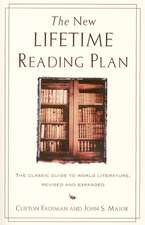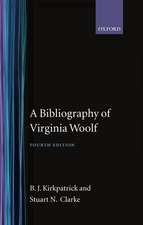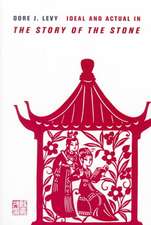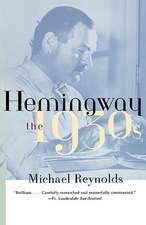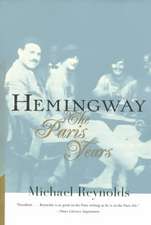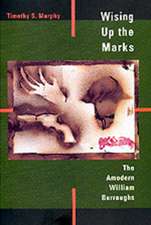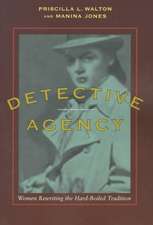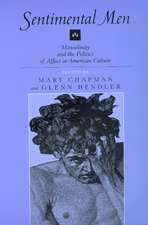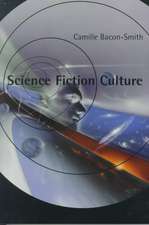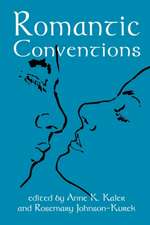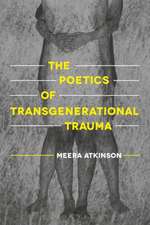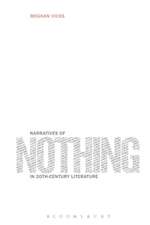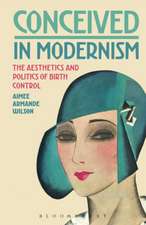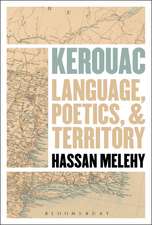Biographical Fiction: A Reader
Editat de Professor Michael Lackeyen Limba Engleză Paperback – 2 noi 2016
| Toate formatele și edițiile | Preț | Express |
|---|---|---|
| Paperback (1) | 259.19 lei 3-5 săpt. | |
| Bloomsbury Publishing – 2 noi 2016 | 259.19 lei 3-5 săpt. | |
| Hardback (1) | 838.36 lei 6-8 săpt. | |
| Bloomsbury Publishing – 2 noi 2016 | 838.36 lei 6-8 săpt. |
Preț: 259.19 lei
Preț vechi: 309.57 lei
-16% Nou
Puncte Express: 389
Preț estimativ în valută:
49.60€ • 51.96$ • 41.10£
49.60€ • 51.96$ • 41.10£
Carte disponibilă
Livrare economică 18 martie-01 aprilie
Preluare comenzi: 021 569.72.76
Specificații
ISBN-13: 9781501318009
ISBN-10: 1501318004
Pagini: 488
Dimensiuni: 152 x 229 x 37 mm
Greutate: 0.77 kg
Editura: Bloomsbury Publishing
Colecția Bloomsbury Academic
Locul publicării:New York, United States
ISBN-10: 1501318004
Pagini: 488
Dimensiuni: 152 x 229 x 37 mm
Greutate: 0.77 kg
Editura: Bloomsbury Publishing
Colecția Bloomsbury Academic
Locul publicării:New York, United States
Caracteristici
Combines primary and secondary material, with reflections, interviews, speeches, and essays by writers and critics such as Julia Alvarez, Malcolm Bradbury, Russell Banks, Joyce Carol Oates, Georg Lukács, Jay Parini, and Colm Toibin
Notă biografică
Michael Lackey is Distinguished McKnight University Professor of English at the University of Minnesota, USA. He is the author of three books, including The American Biographical Novel (2016), and the editor of three volumes, including Truthful Fictions: Conversations with American Biographical Novelists (2014).
Cuprins
Acknowledgments Introduction Authors' Reflections:1. Leonard Ehrlich: "Author's Note" from God's Angry Man (1932)2. Wallace Stegner: Forward from Joe Hill: A Biographical Novel (1950)3. S. Guy Endore: "A Final Word" from King of Paris (1956)4. William Styron: "Nat Turner Revisited" from American Heritage (1992)5. Julia Alvarez: "A Postscript" from In the Time of the Butterflies (1994)6. Barbara Chase-Riboud: "Afterword" from Sally Hemings (1994)7. Malcolm Bradbury: "Preface" from To the Hermitage (2000)8. David Ebershoff: "Introduction" to The Danish Girl (2000)9. Thomas Mallon: "The Historical Novelist's Burden of Truth" from In Fact (2001)10. Jane Yolen and Robert J. Harris: "What is true about this story" from Girl in a Cage (2002)11. Colm Tóibín: "Henry James for Venice" from The Henry James Review (2006)12. M. Allen Cunningham: "Author's Note" from Lost Son (2007)13. Susan Sellers: "About Vanessa and Virginia" from the Two Ravens Press UK website (2008)14. Brian Hall: "Author's Note" from Fall of Frost (2008)15. Barbara Mujica: "Going for the Subjective: One Way to Write Biographical Fiction" from a/b:Auto/Biography Studies (2016)16. Joanna Scott: "On Hoaxes, Humbugs, and Fictional Portraiture" from a/b: Auto/Biography Studies (2016) The Case of Eliza Lynch17. William E. Barrett: "Foreword" from Woman on Horseback: The Biography of Francisco Lopez and Eliza Lynch (1938)18. Anne Enright: "Acknowledgments" from The Pleasure of Eliza Lynch (2002)19. Lily Tuck: "Author's Note" from The News from Paraguay (2004) Lectures and Forums:20. Irving Stone: "The Biographical Novel" from Three Views of the Novel (1957)21. C. Vann Woodward, Ralph Ellison, Robert Penn Warren and William Styron: "The Uses of History in Fiction" from The Southern Literary Journal (1968)22. Michael Lackey, Jay Parini, Bruce Duffy and Lance Olsen: "The Uses of History in the Biographical Novel" from Conversations with Jay Parini (2014)Interviews:23. Julia Alvarez: "Fixed Facts and Creative Freedom in the Biographical Novel" from Truthful Fictions (2014)24. Russell Banks: "The Truth Contract in the Biographical Novel" from Truthful Fictions (2014) 25. Bruce Duffy: "In the Fog of the Biographical Novel's History" from Truthful Fictions (2014) 26. Joyce Carol Oates: "Enhanced Symbolic Interiors in the Biographical Novel" from Truthful Fictions (2014) Essays:27. Georg Lukács: "The Biographical Form and Its 'Problematics'" from The Historical Novel (1937) 28. Carl Bode: "The Buxom Biographies" from College English (1955)29. Paul Murray Kendall: Excerpt from "Contemporary Biography" from The Art of Biography (1965)30. Ina Schabert: "Fictional Biography, Factual Biography, and their Contamination" from Biography (1982)31. Alain Buisine: "Biofictions" from Revue des Sciences Humaines (1991)32. Jay Parini: "Fact or Fiction: Writing Biographies Versus Writing Novels" from Some Necessary Angels: Essays on Writing and Politics (1997)33. Martin Middeke: "Introduction" from Biofictions: The Rewriting of Romantic Lives in Contemporary Fiction and Drama (1999)34. John Keener: Chapters four and five from Biography and the Postmodern Historical Novel (2001)35. Ansgar Nünning: "Fictional Metabiographies and Metaautobiographies: Towards a Definition, Typology and Analysis of Self-Reflexive Hybrid Metegenres" from Self-Reflexivity in Literature (2005)36. Valentina Vannucci: "The Canon and Biofiction: The Subjects of History and New Literary Worlds" from Altri Canoni/ Canoni Altri: Pluralismo e Studi Letterari (2011)37. Monica Latham: "'Serv[ing] under two masters': Virginia Woolf's Afterlives in Contemporary Biofictions" from a/b: Auto/Biography Studies (2012) Bibliography
Recenzii
Biographical Fiction catches the study of biofiction on the upswing. This up-to-the-minute volume, the only one of its kind, features major writers and critics and is sure to be a key point of reference for scholars and students of biographical fiction.
Biofiction has come into its own as a major genre. This timely anthology of author notes and interviews, lectures and essays, covers nearly a century of writing on an increasingly popular genre, tracing its emergence as a distinct form for understanding history and the people, both famous and forgotten, who made it. Scholars owe Michael Lackey a debt of gratitude for compiling such a rich history of this important genre and showing us, in Lackey's words, 'what this aesthetic form is uniquely capable of doing.'
Michael Lackey's magisterial collection introduces general readers, students, and scholars alike to one of the most fascinating and productive fields of 20th and 21st century poetology, theory, and philosophy. Biofictions challenge our understanding of past and present and the way we relate to and account for such issues as history and truth, or personal lives and identity by means of narration. Biofictions are highly intertextual and interauthorial (life-)writings and, therefore, they address perennial questions of originality and authenticity making use of manifold imaginative strategies. Lackey's collection carefully retraces the varied history of biographical fiction from initially rather dismissive reactions from critics to the veritable triumph of the genre after the advent of postmodernism. Lackey has very wisely chosen to present us with a rich choice of texts that spans over almost a century and that includes authors' reflections, lectures, forum contributions, interviews, and a choice of critical essays. This makes for a fascinating, learned, highly informative, multi-perspective, and multi-faceted reading which offers historical overview as well as many starting points for further reading and research--a milestone in biofiction studies.
[This] collection heralds the birth of biofiction as a genre in its own right, separate from historical fiction or life writing, and seeks to advocate for its recognition as a discrete literary phenomenon with its own aesthetic parameters . The strength of this anthology lies in its presentation of many different and important perspectives on the genre . Lackey's choice of contrasting material in this volume allows its readers to weigh up for themselves the status, form and role of the genre, advocating for its importance whilst leaving its definitive boundaries decisively blurred.
Biofiction has come into its own as a major genre. This timely anthology of author notes and interviews, lectures and essays, covers nearly a century of writing on an increasingly popular genre, tracing its emergence as a distinct form for understanding history and the people, both famous and forgotten, who made it. Scholars owe Michael Lackey a debt of gratitude for compiling such a rich history of this important genre and showing us, in Lackey's words, 'what this aesthetic form is uniquely capable of doing.'
Michael Lackey's magisterial collection introduces general readers, students, and scholars alike to one of the most fascinating and productive fields of 20th and 21st century poetology, theory, and philosophy. Biofictions challenge our understanding of past and present and the way we relate to and account for such issues as history and truth, or personal lives and identity by means of narration. Biofictions are highly intertextual and interauthorial (life-)writings and, therefore, they address perennial questions of originality and authenticity making use of manifold imaginative strategies. Lackey's collection carefully retraces the varied history of biographical fiction from initially rather dismissive reactions from critics to the veritable triumph of the genre after the advent of postmodernism. Lackey has very wisely chosen to present us with a rich choice of texts that spans over almost a century and that includes authors' reflections, lectures, forum contributions, interviews, and a choice of critical essays. This makes for a fascinating, learned, highly informative, multi-perspective, and multi-faceted reading which offers historical overview as well as many starting points for further reading and research--a milestone in biofiction studies.
[This] collection heralds the birth of biofiction as a genre in its own right, separate from historical fiction or life writing, and seeks to advocate for its recognition as a discrete literary phenomenon with its own aesthetic parameters . The strength of this anthology lies in its presentation of many different and important perspectives on the genre . Lackey's choice of contrasting material in this volume allows its readers to weigh up for themselves the status, form and role of the genre, advocating for its importance whilst leaving its definitive boundaries decisively blurred.

